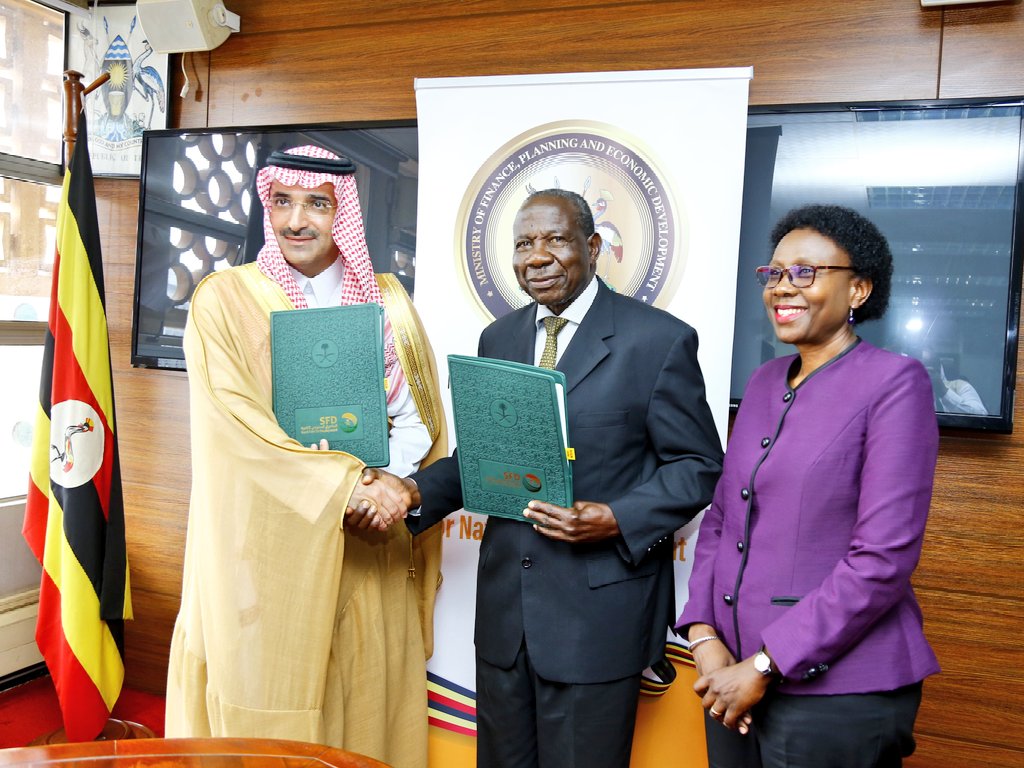The Saudi Fund for Development (SFD) on Wednesday, September 5 signed a new development loan agreement worth $30 million with the Ugandan government.
Chief Executive Officer, H.E. Sultan Al-Marshad, signed the new development loan agreement worth USD $30 million with the Minister of Finance Planning and Economic Development of the Republic of Uganda, Hon. Matia Kasaija.
The SFD is committed to supporting sustainable development in Africa, which includes funding projects in key sectors such as healthcare.
This loan agreement will play a major role in supporting Uganda’s healthcare sector and help to prevent and treat heart disease, which is a major public health threat.
We are proud to be part of this important initiative, which will contribute towards bettering the lives of many,” Al-Marshad stated.
“Today marks the start of a transformative journey for the Uganda Heart Institute. This development loan demonstrates the SFD’s commitment to improving the lives of Ugandan citizens.
Boost by Saudi government
It is a significant contribution to the health of our people and will undoubtedly leave a lasting impact on the healthcare landscape of the country. The new state-of-the-art facilities and services will position the Uganda Heart Institute as a global center of excellence in cardiovascular services,” said Dr. Jane Ruth Aceng, Minister of Health.
In addition, the loan agreement will enable the construction and equipping of the Uganda Heart Institute Project.
The Uganda Heart Institute Project is expected to decrease the number of Ugandans leaving the country to receive cardiovascular treatment. The project is expected to benefit over 62,000 people.
Moreover, the SFD’s contribution to this project will help to support the healthcare sector in Uganda, and assist the government to achieve their National Development Plan III, which aims to enhance productivity and social wellbeing among the population.
Likewise, the institute will host a wide range of cardiovascular surgical interventions, five fully fledged clinical and research laboratories, and 222 beds, out of which 20 beds will be for the Critical Care unit.
Finally, the project is touted to play a vital role in addressing cardiovascular disease management by training workers to effectively deal with heart problems, potentially decreasing mortality rates and heart disease in the region.


